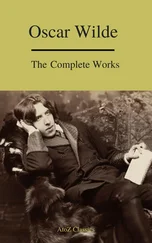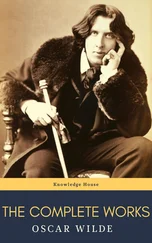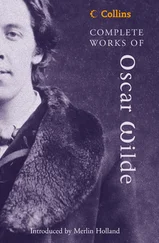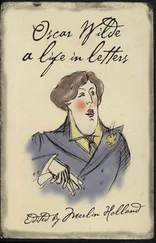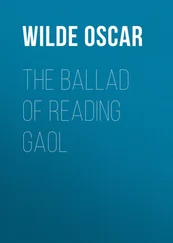On his return to England Wilde added his ‘Personal Impressions of America’ to his repertoire and continued lecturing as a source of income until 1888. Indeed, from 1883 until early in 1885 it was almost his only source of income. He was acutely aware of this and tried on several occasions to have himself made an inspector of schools, as Matthew Arnold had done before him, but without success. In 1885 he even writes to an unidentified correspondent: ‘Believe me that it is impossible to live by literature. By journalism a man may make an income but rarely by pure literary work. I would strongly advise you to make some profession, such as that of a tutor, the basis and mainstay of your life, and to keep literature for your finest, rarest moments. Remember that London is full of young men working for literary success, and that you must carve your way to fame. Laurels don’t come for the asking.’ Shortly afterwards he took his own advice and his career in journalism lasted from 1885 until 1891. In addition to helping with the family finances it enabled him to publish most of the stories and essays contained in this volume and played a part in his literary development, the importance of which has been largely underestimated.
Other research is beginning to probe into the influence on his writing of Wilde’s Irish background, and his reading of other authors which was prodigious (at the sheriff’s sale of all his possessions after his arrest, nearly two thousand volumes were disposed of). The old arguments over whether his literary ‘borrowings’ are plagiarism or not, have been reopened and are being reassessed. Wilde as the lightweight author of society comedies, a few memorable poems and some fairy stories may eventually have to make extra room for Wilde as a hard-working professional writer, deeply interested by the issues of his day and carrying in his intellectual baggage something that we all too frequently overlook, a quite extraordinary classical and philosophical education. I realise that for most people the idea of Wilde as a scholar and thinker sits uncomfortably beside their view of him as wit and bon viveur, ‘the spendthrift of my own genius’ as he put it, but that is just another of the delicious paradoxes with which he has left us. His interest in social matters, in the power of the theatre to question and criticise as well as to entertain, his belief in the importance of women’s role in society and his own fragile position within it as an outsider, are all coming to light.
For anyone concerned that all this may destroy the lightness of touch with which they have come to associate Oscar Wilde, an antidote is to hand in the form of his letters. Two collections have been published in 1962 and 1985, and if they have helped to validate the view of him as a more profound writer, they have also added immeasurably to our knowledge of him as a man. Wonderfully fluent in style, when read aloud they must be the nearest we shall ever come to hearing that legendary conversation. I should like to have included some of them here but for reasons of space this was not possible. One, however, the publisher has allowed me and I offer it to you as a little bonne-bouche of what is to be found there. He wrote it to an old friend, Frances Forbes-Robertson, on her marriage in 1899, when he was living in Paris and at his poorest. It has humour, beauty and sadness.
My dear, sweet, beautiful Friend, Eric [her brother] has just sent me your charming letter and I am delighted to have a chance of sending you my congratulations on your marriage, and all the good wishes of one who has always loved and admired you. I met Eric quite by chance and he told me he had been over to the marriage. He was as picturesque and sweet as usual but more than usually vague. I was quite furious with him. He could not quite remember who it was you had married, or whether he was fair or dark, young or old, tall or small. He could not remember where you were married, or what you wore, or whether you looked more than usually beautiful. He said there were a great many people at the wedding but he could not remember their names. He remembered, however, Johnston [another brother] being present. He spoke of the whole thing as a sort of landscape in a morning mist. Your husband’s name he could not for the moment recall: but he said he thought he had it written down at home. He went dreamily away down the Boulevard followed by violent reproaches from me, but they were no more to him than the sound of fluting: he wore the sweet smile of those who are always looking for the moon at mid-day.
So, dear Frankie, you are married, and your husband is a king of men. That is as it should be; those who wed the daughters of the gods are kings, or become so.
I have nothing to offer you but one of my books, that absurd comedy The Importance of Being Earnest, but I send it to you in the hopes that it may live on your bookshelves and be allowed to look at you from time to time. The dress is pretty, it wears Japanese vellum and belongs to a limited family of nine and is not on speaking terms with the popular edition: it refuses to recognise the poor relations whose value is only seven and sixpence. Such as the pride of birth. It is a lesson.
Ah! how delightful it would be to be with you and your husband in your own home! But my dear child how could I get to you? Miles of sea, miles of land, the purple of the mountains and the silver of the rivers divide us: you don’t know how poor I am: I have no money at all: I live, or am supposed to live, on a few francs a day: a bare remnant saved from a shipwreck. Like St Francis of Assisi I am wedded to poverty: but in my case the marriage is not a success; I hate the bride that has been given to me. I see no beauty in her hunger and her rags: I have not the soul of St Francis: my thirst is for the beauty of life: my desire for the joy. But it was dear of you to ask me, and do tell the king of men how touched and grateful I am by the invitation you and he have sent me.
And, also sometimes, send me a line to tell me of the beauty you have found in life. I live now in echoes and have little music of my own. Your old friend
OSCAR
The Collins Complete Works of Oscar Wilde has remained unchanged since 1966 and as it has now been entirely reset, I felt it important to add what I believe to be the best of both his journalism and his lectures. They have hardly been seen at all since their appearance in the first collected works of 1908, brought out by Wilde’s literary executor, Robert Ross, and quite apart from the important role which they played in Wilde’s life, they contain some memorable passages which have been ‘lost’ for too long. Professor Kevin O’Brien of St Francis Xavier University in Nova Scotia has very kindly allowed me to use the texts of ‘The Decorative Arts’ and ‘The House Beautiful’ which he reconstructed from existing manuscripts and contemporary newspaper reports.
The other change which I felt was timely was to put his poems into chronological order. When they were first published in 1881, Wilde grouped them thematically. This sequence was followed in the edition of 1882 which was the last the author oversaw. In the 1908 edition Ross included 24 previously unpublished pieces as well as ‘Ravenna’ ‘The Sphinx’ and ‘The Ballad of Reading Gaol’ all of which had been published as separate volumes. By the following year two more unpublished poems, ‘Pan’ and ‘Désespoir’ had surfaced and were included in editions from then on. All these additional poems were simply tacked on to the end of Wilde’s original order. In the last Collins revision of 1966, for whatever reason, neither Wilde’s nor Ross’s order was respected, and since I have taken the liberty of including a number of poems discovered since then, it seemed sensible to present all the poetry in the order in which Wilde wrote it. For this, and for the new poems, I am indebted to Professor Bobby Fong of Hope College, Michigan, who most generously shared his research with me.
Читать дальше
Конец ознакомительного отрывка
Купить книгу


